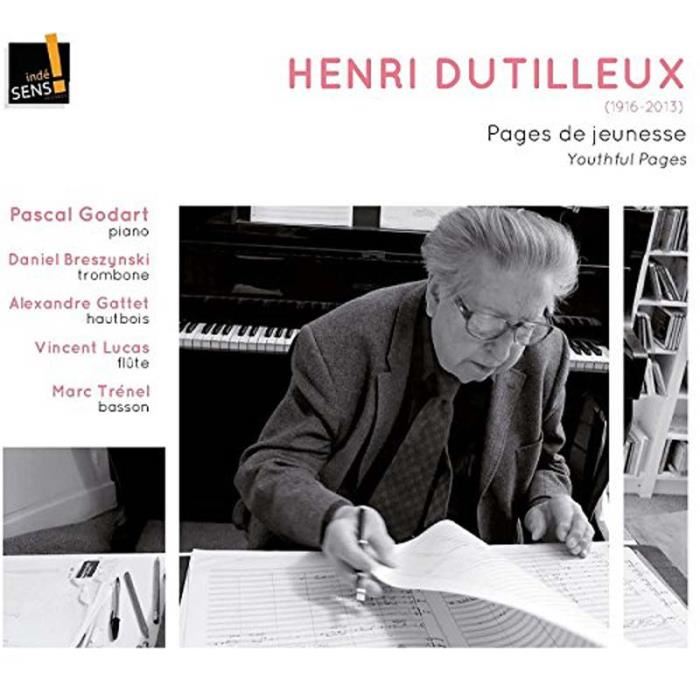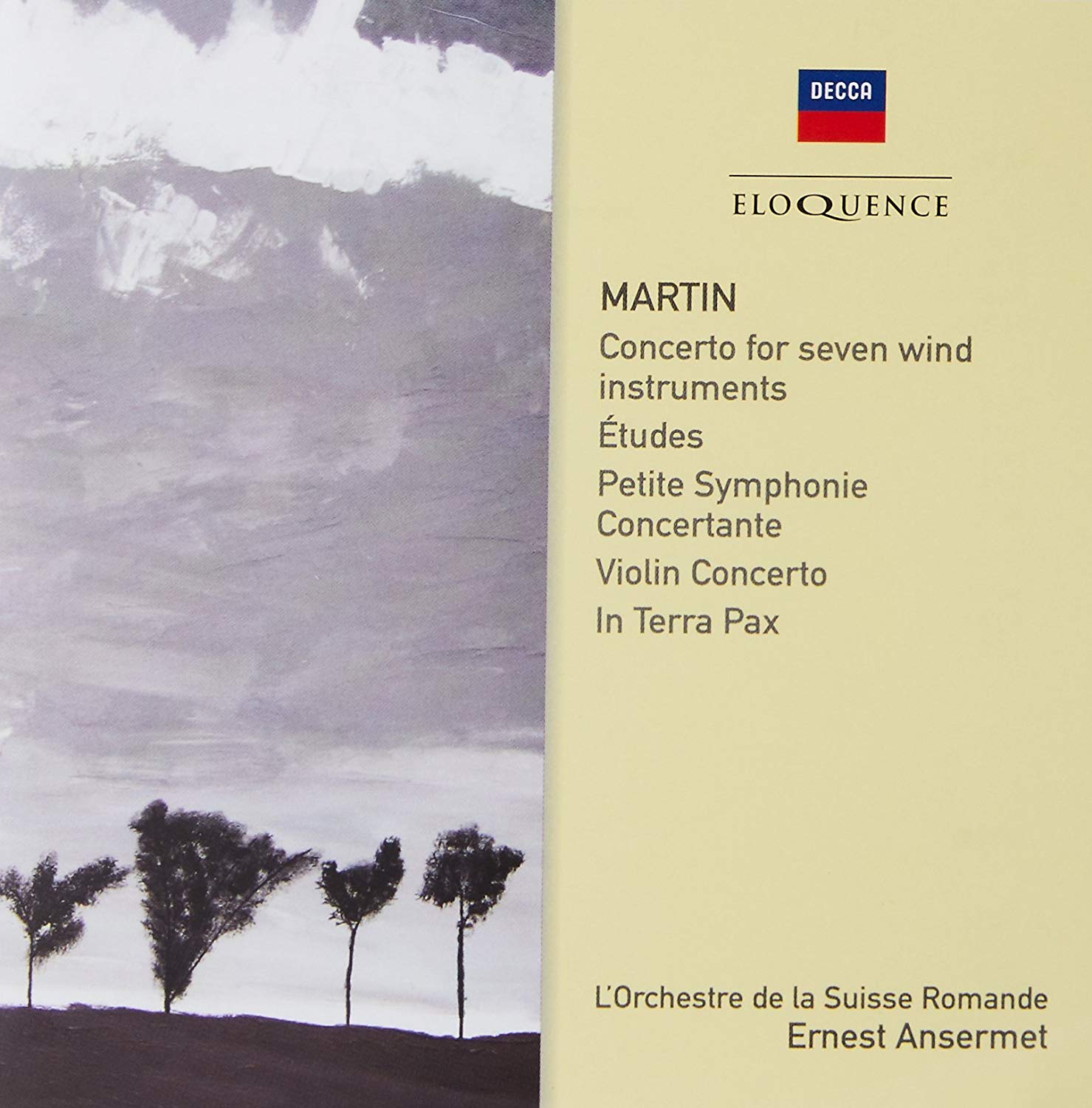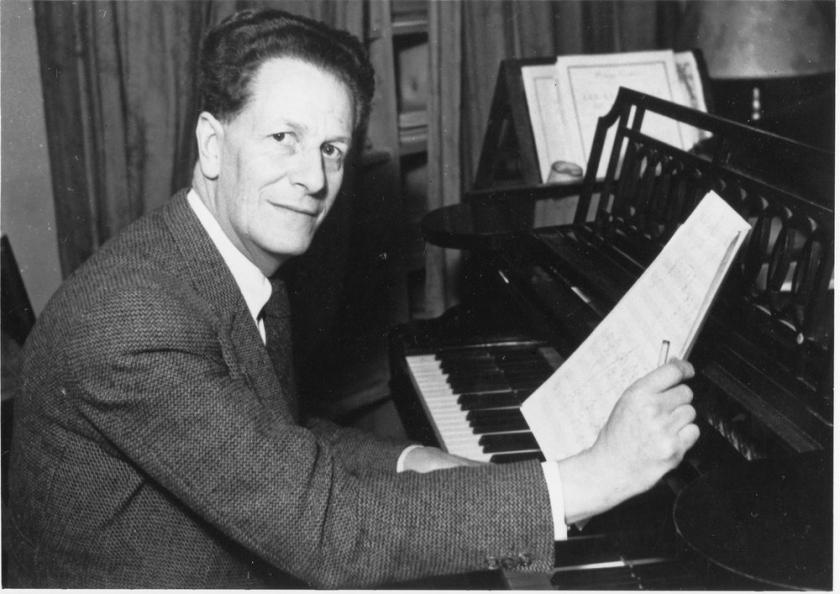 Boris Blacher: Dance Suite, Hamlet, Poème, Concertante Music Rundfunk-Sinfonieorchester Berlin/Johannes Kalitzke (Capriccio)
Boris Blacher: Dance Suite, Hamlet, Poème, Concertante Music Rundfunk-Sinfonieorchester Berlin/Johannes Kalitzke (Capriccio)
Boris Blacher’s stock would presumably be higher had he opted to leave Germany when the Nazis came to power. He was an influential teacher whose later pupils included Aribert Reimann and Kalevi Aho, though his progressive musical sympathies meant that he was prevented from teaching during the war years. As heard on this disc, Blacher’s orchestral music is fluent, transparently scored and diverting while it lasts. His stylistic range was broad: traces of Poulenc, Stravinsky and Schoenberg all crop up. Christian Heindel’s sleeve note suggests that the popular success of 1937’s Concertante Music kept Blacher safe, the work praised and criticised in equal measure by state pundits. This is a supremely entertaining piece, and much too short at just under nine minutes. There's a magical moment just before the end where a widescreen string melody soars over punchy brass chords. It's brilliant, and one of the best tunes you’ll hear this year.
A 1940 symphonic poem inspired by Hamlet is a darker affair, anguished, edgy music with an affecting coda, soft drum beats heard under a Bergian string line. The four-movement Dance Suite mixes music from different stages of Blacher's career, the two extracts from his extended ballet Demeter making the strongest impression. You're left wanting to hear the whole thing. And there's the Poème from 1974, Blacher's final orchestral work. Tonality and dissonance blend to magical effect; Stravinsky's Agon must have been an influence. Fascinating stuff, then, and snappily played by Johannes Kalitzke’s Berlin forces. Can we have a second volume please?
 Dutilleux: Pages de jeunesse Pascal Godart (piano) (Indésens)
Dutilleux: Pages de jeunesse Pascal Godart (piano) (Indésens)
Fastidious and self-critical, Henri Dutilleux's complete works don’t take up much shelf space. If you've not yet discovered his music, begin with his criminally underrated Symphony No. 1. Or with the Piano Sonata, completed in 1948 and Dutilleux's official Opus 1, despite his having been composing for over a decade. Irresistibly French-sounding and utterly individual, it's a delight. Particularly in the second-movement, the world-weary main theme underpinned by deliciously offbeat left hand chords. There's an electrifying fourth variation in the finale, brilliantly played here by Pascal Godart. He's the accompanist in the couplings: four early works for solo winds and piano, commissioned by the then director of the Paris Conservatoire who wanted young instrumentalists to tackle challenging contemporary music.
The Sarabande et Cortège for bassoon and piano crams an incredible amount into just a few minutes, Dutilleux giving us a short, sharp distillation of the bassoon’s character. A Sonatine for flute and piano is enchanting, a spikier alternative to Poulenc’s over-familiar flute sonata. The oboe sonata is similarly beguiling, with the Choral, cadence et fugato for trombone and piano another find, the acrobatic closing pages electrifying. Wind players will presumably know these works already, but they deserve a wider airing. Performances here are unfailingly impressive, with bassoonist Marc Trénel, flautist Vincent Lucas, oboist Alexandre Gattet and trombonist Daniel Breszynski consistently impressive.
 Martin: Orchestral works L’Orchestre de la Suisse Romande/Ernest Ansermet (Decca Eloquence)
Martin: Orchestral works L’Orchestre de la Suisse Romande/Ernest Ansermet (Decca Eloquence)
Swiss conductor Ernest Ansermet’s Decca discography is vast: huge swathes of French and Russian repertoire, mostly taped in Geneva with his beloved Suisse Romande Orchestra. He was on first name terms with Debussy and Ravel, and suffered a famous falling out with Stravinsky, much of whose music he recorded in the 1950s and 60s. Ansermet was also a close friend of his compatriot Frank Martin, and this Decca Eloquence set collects four LPs of Martin’s music, taped between 1951 and 1963. Did Martin ever pen a dud work? If he did, I've not heard it. His Petite Symphonie Concertante should be on everyone's playlist, a 20th century Brandenburg Concerto assembled with Bachian rigour and showcasing Martin’s sharp ear for sonority. I probably need to get out more, but I've long used this piece as a musical anti-depressant, the solemn opening containing the barest hint of what's to come. Notably the incredible care with which the piece is constructed, the tiniest phrase exploited to immense effect, the tunes intensely chromatic but very singable. Listen to a decent modern recording (there's a good one conducted by Armin Jordan) and you’ll hopefully be hooked. Ansermet's 1951 account is as authoritative as they come, but the mono sound makes this a reading a connoisseurs’ option. Still, harp, piano and harpsichord are ideally balanced, and Ansermet's taut speeds make for an uncommonly exciting (and uplifting) coda. The other mono recording is a 1955 version of Martin’s Violin Concerto with Wolfgang Schneiderhan. Again, what a piece – incredibly personal, beautifully constructed and brimming with melody.
There's a delicious account of the Concerto for seven wind instruments , timpani, percussion and string orchestra, the Suisse Romande wind soloists peerless (especially a wonderfully French sounding bassoon). Ansermet highlights the nods to Haydn and Ravel, and, again, the closing pages are glorious. The Études for string orchestra delight here, Martin at one point transforming the players into a giant guitar. How can this music be so little known? The longest work is the 1944 oratorio In Terra Pax, first broadcast on Swiss Radio in May 1945. Stark, intimate and radiant by turns, it contains some superb music – though it's a shame that no texts are included. An essential purchase.














